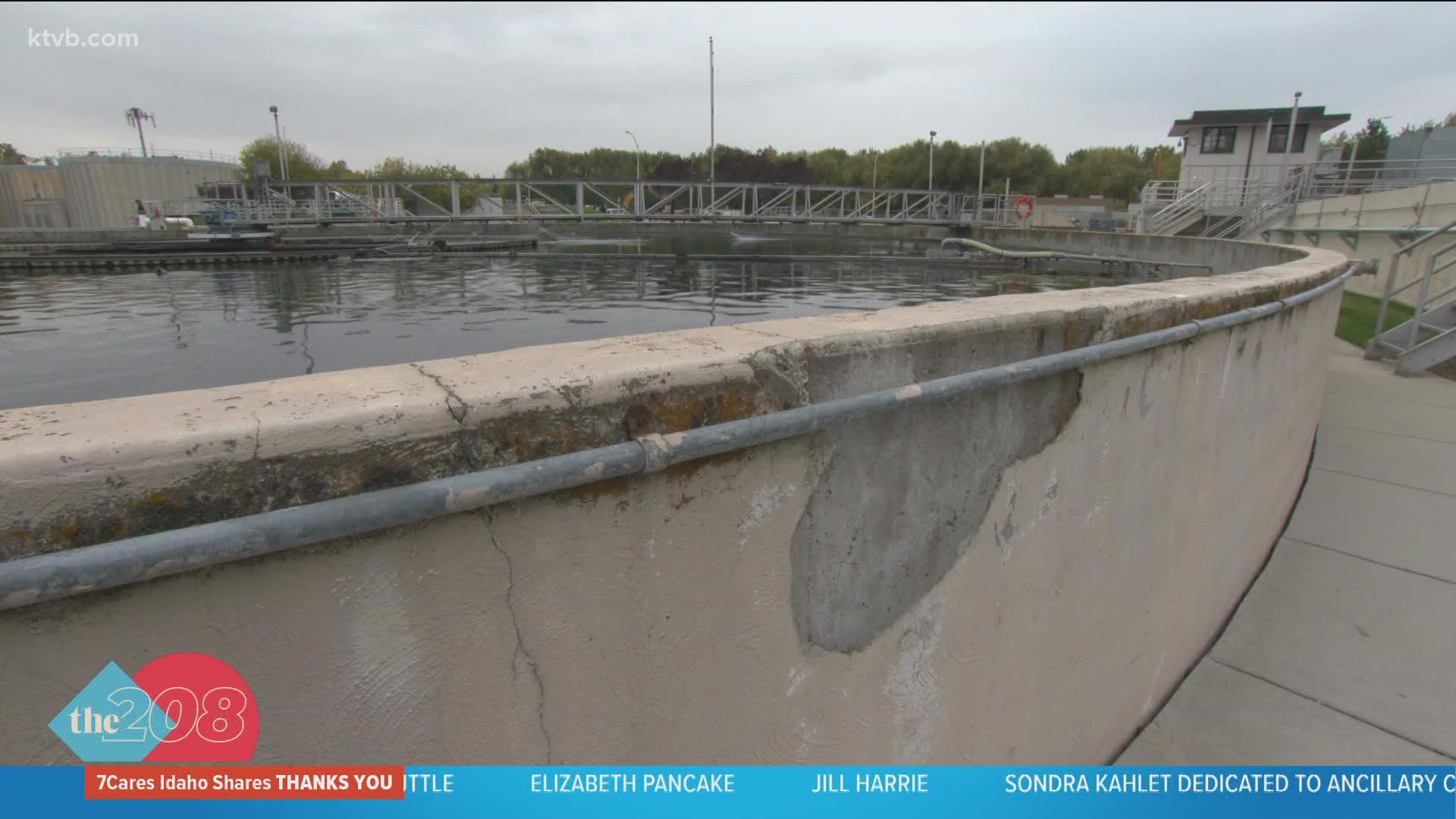BOISE, Idaho — When you look and listen, water ending up at a treatment facility seems very unremarkable. If you have the right lens, though, wastewater is actually full of value.
“We are sending samples to a lab that runs analysis to measure the amount of the COVID virus in the wastewater,” said Haley Falconer, the environmental manager for the City of Boise Public Works Department.
Falconer said since testing started in spring of 2020, the wastewater has turned into a major boon for COVID insights.
“What we’ve learned about the data is that it is a leading indicator for clinical COVID cases. So, what that means when we start to see a rise of the virus in the wastewater, we can then expect a rise in COVID cases 5 to 7 days later,” Falconer said.
For example, wastewater testing results that include Boise, Garden City, and Eagle water samples from September 10 showed a 2021 high in COVID particulates. Sure enough, days later, Ada County reported its highest daily case counts of the year.
Looking through the dashboard, data shows the 2021 peak of COVID in the wastewater was back in September. So, how does that compare to what we are at now?
“That’s an excellent question, the virus load numbers have come down I was looking at it yesterday and it looks like they are trending back up. We are sending samples three days a week, so we do post those as we get those results and we update that. I guess, to be determined on what that looks like from a COVID cases over the next few weeks,” Falconer said.
The COVID conversation has evolved since March 2020 to now include terms few were familiar with pre-COVID. A phrase many have fixated on recently is "virus variant." Wastewater testing has led the charge in providing valuable insights on that topic.
“The most useful thing over the past few months has been the addition of the variant testing, which we have actually been doing now for almost a year with the University of Missouri, and so they are able to screen for the variants and what we saw with the delta variant is that we were able to measure the presence of that variant in the wastewater before we had a clinical case recognized in the region. And that is something we are doing right now for the latest (omicron) variant,” Falconer said.
That latest variant, omicron, has not been detected yet, but is expected to be, likely in the next few weeks.
So, is this a situation where Boise will keep monitoring wastewater for the foreseeable future?
“Hard to say, but I would think yes. Where we are right now, I can’t imagine that we are going to stop monitoring for the SARS-COV-2 Virus (COVID-19). I think even when we get further along and things stabilize a bit, I would imagine we are doing some amount of regular analysis, because the trend is really important in this wastewater data, is seeing if there is any substantial change. So we have to analyze enough to have a trend to look at. I think where we could also see additions in talking with our local health partners, things like the norovirus or the seasonal flu are other potential things we could test for in the water that could have local health data impacts,” Falconer said.
Join 'The 208' conversation:
- Text us at (208) 321-5614
- E-mail us at the208@ktvb.com
- Join our The 208 Facebook group: https://www.facebook.com/groups/the208KTVB/
- Follow us on Twitter: @the208KTVB or tweet #the208 and #SoIdaho
- Follow us on Instagram: @the208KTVB
- Bookmark our landing page: /the-208
- Still reading this list? We're on YouTube, too:

